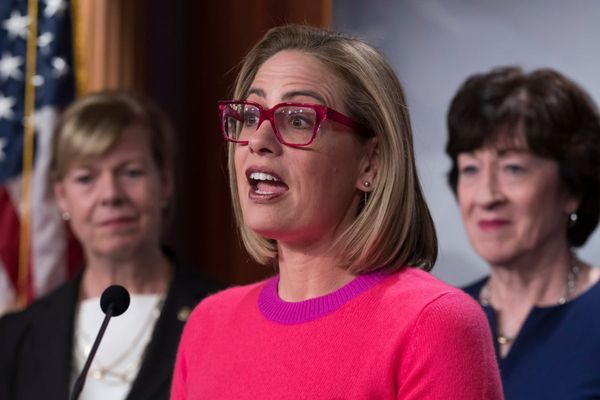A COMPANY controlled by billionaire media baron Rupert Murdoch, a US military aircraft producer, and a Clyde port owner with an alleged history of tax avoidance are among the tax haven firms given £77 million by the Scottish Government.
Other offshore firms in receipt of public subsidies ditched pledges to create hundreds of jobs, or laid off hundreds of workers just a few years after accepting millions of pounds of taxpayer handouts.
This investigation is part of The Ferret’s ongoing Money Trail series, in which we are exploring how international wealth flows through Scotland, and how it shapes our politics, public finances, and land and property ownership.
Our findings prompted calls from an MSP to give the Scottish Government the means to “clawback” public funds when firms fail to deliver on promises of jobs and investment. But Scottish Enterprise said grant contracts contain a provision which requires repayment of funding if terms and conditions are not met, including job creation conditions.
Incorporating a firm offshore does not equate to wrongdoing. But the anonymity afforded to corporate owners in jurisdictions like the Cayman Islands, British Virgin Islands, or the US state of Delaware creates risks of “corruption and tax abuse”, campaigners warned.
Transparency International UK argued that companies must be required to reveal their true owners before they are given public money.
Scottish Enterprise (SE), the Government’s business agency, awards grants and other payments to firms active in Scotland or seeking to set up a base here, incentivising them to invest and create local jobs.
The agency’s financial support led to more than 9000 Scottish jobs being generated by global companies last year alone, it said.
But some subsidised firms collectively promised to create more than 1000 jobs which either failed to materialise, or were cut just years later, while 1150 more are at risk.
The Ferret analysed a list of grants, investments and other payments of more than £25,000 that SE made to nearly 2600 companies between January 2020 and December 2024. We identified 18 that were ultimately owned in tax or secrecy havens, and had been given £1m or more in grants by Scottish Enterprise over the investment agency’s lifetime.
Mangata Networks
IN 2022, the Delaware-incorporated satellite maker, Mangata Networks, announced a hub in Prestwick which it claimed would create 575 new jobs. A total of £84m in taxpayer funding was pledged – £54.5m from SE and £29m from the Scottish, UK, and Ayrshire local governments – that was expected to be repaid over 15 years.
Files released by the Scottish Government, via a separate FOI request, claim Mangata’s boss “clearly stated” he would only choose Scotland if given “an incentive package” that exceeded an offer from a rival country.
However, Mangata last year scrapped plans to create the jobs, reportedly blaming challenging economic conditions, increased material costs and supply chain issues.
Mangata said at the time it would continue its Scottish research and development operations, which were subsidised by a separate SE grant.
Mangata has received £4.3m from SE to date. SE stressed that subsidised firms are typically paid in tranches at pre-agreed milestones, and are required to evidence project expenditure before they can claim grant payments. As such Mangata will not receive the full £54.5m originally pledged.
LumiraDx
IN 2021, SE agreed to provisionally award £15m to LumiraDx – a Cayman Islands-owned health diagnostics firm – to help create 500 to 750 new jobs as part of plans to establish hubs across Scotland.
But two years later, the firm had announced 510 redundancies in Clackmannanshire and Stirlingshire. LumiraDx reportedly said it grew its operation to make Covid-19 test kits, and was shrinking back to pre-pandemic levels. LumiraDx, which received £3.6m from SE, is in the process of being liquidated, according to the UK business registry.
Spirit AeroSystems
SPIRIT AeroSystems, whose parent company is also incorporated in the tax and secrecy haven of Delaware, makes planes and US military aircraft. It opened a hub in Prestwick in 2021, and took nearly £7.9m in SE grants.

Clydeport
THE west coast ports, run by Peel Ports and ultimately owned in the Cayman Islands, received £1.1m from SE via their subsidiary companies. A member of Westminster’s public accounts committee claimed in 2013 that Peel did “not pay their fair share of corporation tax” – a claim rejected by the company.
Its billionaire chair, John Whittaker, who is domiciled in the tax haven of the Isle of Man, was last year accused of leaving Ardrossan port to ruin, while he and other shareholders received nearly £300m in dividends.
Port director Jim McSporran told The Ferret his firm invested £68m in Scotland in the last three years, which would “transform the economic prosperity of the west coast” and create “thousands of jobs”.
SOLVEDBY.AI
THE tech firm was given £1.1m by SE. It was part of Work Tech Group – which is incorporated in the British Virgin Islands (BVI) – until it demerged from the group in January. The BVI is a renowned tax and secrecy haven and Work Tech’s latest UK accounts state that the controlling party of the company is “not known”.
Earlier in July, the BVI and several other UK offshore territories failed to meet the final deadline to introduce publicly accessible beneficial ownership registers designed to deter financial corruption.
A SOLVEDBY.AI spokesperson said Work Tech Group was also registered in the UK, requiring it to disclose the same information as UK companies, and pay corporation tax. Both Work Tech and SolvedBy.AI “met their tax and reporting obligations”, they added.
HarperCollins
THE publishing firm – founded in Glasgow but owned by News Corporation for decades – received nearly £2m from SE to design and install a robotic management system at its Robroyston warehouse.

Calls for tighter rules and 'clawback clause'
CAMPAIGNERS and MSPs urged SE to demand more transparency from companies about their ownership and tax affairs before awarding public money to them with conditionality attached to grants. Others challenged the investment arm to stop funding tax haven firms altogether.
Tom Brake, a former LibDem MP and director of campaign group Unlock Democracy, highlighted that Holyrood blocked Covid-19 relief funds to tax haven firms after parliament backed a Green amendment to a 2020 bill.
“There is a cast-iron case for adopting this policy comprehensively to stop taxpayers’ money from disappearing into companies whose tax affairs are a closed book,” he added. The Greens also called on the Scottish Government to adopt the policy “on a permanent basis”.
Labour MSP Paul Sweeney urged SE to write “a clawback clause” into contracts to recoup public funds if firms “fail to deliver” on projects, or later slash their Scottish investments.
“There have been too many cases of public subsidies being awarded to projects undertaken by multinational firms that have failed to create the jobs and economic growth that were promised,” he said.
Alex Cobham, chief executive of the Tax Justice Network, stressed that while not all firms using secrecy jurisdictions are “behaving badly”, the lack of transparency creates risks of “corruption and tax abuse”.
Any company receiving public funds should be required to disclose their financial affairs in all the jurisdictions where they operate, he argued.
Juliet Swann of Transparency International UK also called for tighter rules. “Requiring companies registered in tax havens to disclose their true owners as a condition of receiving public funding would dramatically improve due diligence,” she said.
“The public has a right to know who ultimately benefits from their money.”
A spokesperson for Scottish Enterprise said: “Global businesses are attracted to Scotland by its collaborative business support environment, access to a skilled workforce, as well as a range of funding packages to develop new, or grow existing, operations here. Scottish Enterprise’s focus is on attracting and working with inward investors to invest and create jobs in Scotland.
“As a direct result of our support last year, global companies choosing to locate here generated more than 9000 jobs in Scotland.
“Corporation tax is a matter reserved to the UK Government and decisions around the location of registered offices are made by individual companies and are based on a wide range of factors.”
Every company named in this article was approached for comment.
We updated this article at 18.36, 11.08.2025, to include a clarification previously given to us by Scottish Enterprise in response to calls from an MSP for a “clawback clause” in SE contracts. The investment agency stressed that its grant contracts contain a provision which requires repayment of funding if terms and conditions are not met, including job creation conditions.







